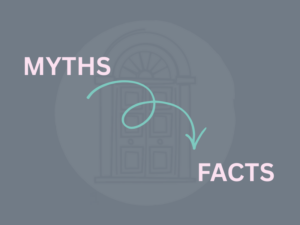Managing Menopause
For World Menopause Day today, I have asked my private GP colleague, Dr Sharon Rachman, to share some useful facts and resources regarding menopause. As a GP with a special interest in Women’s Health, Dr Rachman is enthusiastic about helping women to understand the hormonal changes of menopause, cope with related symptoms and address any concerns.
Definitions
Peri-menopause – This is a time of hormone fluctuation that often starts in the mid to late forties and leads up to the menopause. It can occur for many years before the menopause itself.
Menopause – When a woman has not any periods for one full year, she enters the chapter of life known as menopause. On average in the UK, this happens at the age of 51 years. As a result, women spend nearly a third of their lives in menopause.
Symptoms
Whilst hot flushes might be what most often springs to mind when thinking about peri-menopause and menopause, there are in fact over 30 symptoms that can be attributed to this time in a woman’s life. 75% of women experience symptoms during the peri-menopause and menopause. In 2022, The Fawcett Society survey of over 4000 UK-based women aged 45-55 years found that:
- 84% experienced sleeping issues
- 73% experienced brain fog
- 69% experienced anxiety and/or depression
- 51% said that peri-menopause and menopause affected their sex life
- 45% of women felt that peri-menopause and menopause impacted negatively on their work
… and yet 45% of women had not spoken to a GP about their symptoms!

More on Mental Health during Menopause
Due to hormonal variations during peri-menopause and menopause, women may experience a range of changes in their mental health. The common changes include sadness/tearfulness, loss of confidence, being more easily overwhelmed by situations and challenges, anxiety and worry about tasks (that never caused anxiety in the past) and social anxiety.
How to Address Symptoms

There are many helpful and straightforward ways to ease symptoms during the peri-menopause and menopause. These range from simple dietary adaptations, undertaking exercise and relaxing activities and making small environmental modifications to targeted medical treatments. It is never too late to start such methods – there is help available to both alleviate symptoms and optimise general health at all ages and all stages of the peri-menopause and menopause.
At The Walcote Practice, our experienced GPs are happy to listen, discuss your concerns, provide advice and guidance, prescribe treatment if necessary, and help you to navigate your peri-menopause and menopause as well as focus on and optimise your general health. To book an appointment with one of our private GPs, please phone 01962 828715.
Useful Resources regarding Peri-menopause and Menopause
Evidence based materials can be found on the following websites and apps:
Websites
Apps
- BALANCE – menopause support for symptom tracking and access to useful links/information (free to download)
Additional resources that patients have found to be useful include:
Podcasts (most are free)
- The Doctor Louise Newson Podcast – weekly topics
- Zoe Science and Nutrition
- The Happy Menopause – diet and lifestyle focus
- The Liz Earle Wellbeing Show (requires subscription)
Books
- ‘The Definitive Guide to the Peri-menopause and Menopause’ by Dr Louise Newson
- ‘Cracking the Menopause’ by Mariella Frostrup and Alice Smellie
- ‘Menopausing’ by Davina McCall
- ‘The Good Menopause Guide’ by Liz Earle
- ‘The Menopause Reset’ by Dr Mindy Pelz



